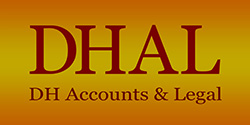The UK tax year begins on 6 April 2018 and the start of the new tax year in UK brings a raft of tax changes that you simply can’t afford to ignore as they all come into force in the coming months. 1. National Living Wage will increase The National Living Wage for those aged 25 and over will increase from £7.50 per hour to £7.83 per hour from April 2018. 2. Tax-free personal allowance will rise The personal allowance – the amount you earn before you start paying income tax – will rise from £11,500 to £11,850 from April 2018. 3. Income Tax bands of taxable income will rise […]
VAT is one of the things all businesses need to be aware of. It’s important, for example, to understand what the VAT threshold is and when you need to register for VAT. It’s also important to consider what benefits you might get from registering even if you are below the threshold. Also you need to know who can not register for VAT. What is VAT Value Added Tax – the amount of tax added to the value of goods or services you buy. All VAT registered businesses must charge VAT on the goods or services they provide in the UK. A business which is registered for VAT will charge VAT […]
This free (and highly detailed) book, written by Diana Hurta, is for people who run a business or planning to start own business in the United Kingdom as a self-employed. You will find answers to these questions: What does it mean to be self-employed. What are your responsibilities. When do you need to file your tax return. What and how much tax do you need to pay. What records do you need to keep. What expenses you can claim. How to keep tidy records. Also you will get GIFTS! Download our FREE ebook in PDF format by subscribing to our email list using the quick form below. […]
What you need to do to start a business in the UK, depends on your structure of business. Most businesses register as a sole trader, private limited company or partnership. Sole traders If you’re a sole trader, you run your own business as an individual and you’re self-employed. You can keep all your business profit after you’ve paid tax on it. You’re personally responsible for any losses your business makes. You must also follow certain rules on running and naming your business. Your responsibilities It’s simpler to start as a sole trader. You’ll need to: keep records of your business sales and expenses, send a Self Assessment tax return every […]
I will speak about two most popular types of business structures in the UK: sole trader (ST) and private limited company (LTD). Starting up as a sole trader is without doubt the simplest way to start a business in the UK. All you need to do is inform HMRC that you are working as self-employed, and report your business activities through the annual self assessment tax return. Setting up business as a LTD involves a more complex formation process, and the financial and administrative responsibilities of running a LTD are greater than those of a ST. However, there are many benefits which LTD has over the ST. Here are 10 […]
This free (and highly detailed) book, written by Diana Hurta, is for people who run a business or planning to start own business in the United Kingdom as a self-employed. You will find answers to these questions: What does it mean to be self-employed. What are your responsibilities. When do you need to file your tax return. What and how much tax do you need to pay. What records do you need to keep. What expenses you can claim. How to keep tidy records. Also you will get GIFTS! Download our FREE ebook in PDF format by subscribing to our email list using the quick form below. […]
The start of the new tax year in UK brings a raft of tax changes that you simply can’t afford to ignore as they all come into force in the coming months. We have provided some of 10 key changes and the proposed implementation dates. 1. The Personal Allowance will rise from April 2017 The Personal Allowance is the amount of income you can earn before you start paying income tax. It’s currently £11,000 this year, and will rise to £11,500 in 2017-18. The point at which you pay the higher rate of income tax will increase from £43,000 this year, to £45,000 in 2017-18. 2. The National Living Wage […]
The tax year in UK is from 6 April to 5 April the following year. Self Assessment is a system HM Revenue and Customs (HMRC) uses to collect Income Tax. Tax is usually deducted automatically from wages, pensions and savings. People and businesses with other income must report it in a tax return. Who must send a tax return You’ll need to send a tax return if, in the last tax year: you were self-employed even though the tax due may in fact be ‘nil’ you were a company director you got dividends from shares you had income from abroad that you needed to pay tax on you lived […]





